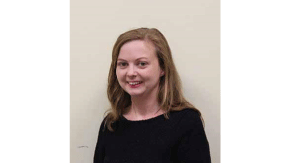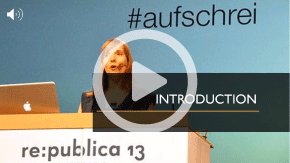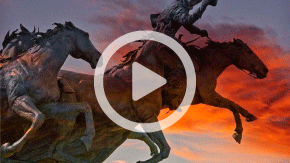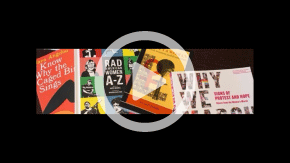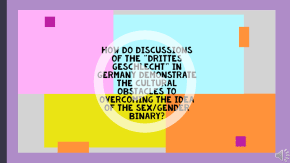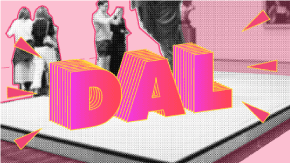2020 Gender Trouble in Contemporary German Culture

|
Gender Trouble in Contemporary German Culture a 15 CAT final-year module in SMLC. It is assessed through a traditional essay (3500 words, 80%), multimedia project (10 minutes, 15%), and peer-review exercise (500 words, 5%). This assessment portfolio was designed to address different learning styles and competencies. In particular, the multimedia project allows students to present their ideas beyond the written form and use technical aids to create a clear and compelling argument. Employability was a second consideration; many students will be required to present complex ideas orally in their professional roles and will also have to engage in self-reflection and peer-review throughout their careers. Finally, I wanted to give students the opportunity to design research questions based on their personal interests.
The instructions for the multimedia project are relatively broad: oral presentation must be the primary medium and the topic must be approved in advance and relate to the overarching themes of the module. I provide a list of sample topics based on the works and themes discussed in class. In 2019-20, half the cohort took these questions and our core primary works as a starting point for their research; the other half chose to explore wider issues relating to gender and contemporary Germany. The result was a rich and varied set of assignments (video essays, narrated PowerPoint presentations, and even an Instagram project) of an exceptionally high quality. Indeed, the time, effort, and research invested in these projects was more than I could have imagined—even from this group of very conscientious students. As a result, in future years, I will significantly increase the weighting of the multimedia project to 30%. |
Want to Know more about this?This is one of the undergraduate modules in German Studies of the School of Modern Languages and Cultures at Warwick. Meet the Module Coordinator...
Check out the amazing pieces that the students enrolled in this module have produced!! |
These are some examples of the students' work created in this Module...
|
Video Essay Title: "How does the setting of Lola undBilidikid allow Kutlung Ataman todemonstrate the intersectionaldimensions of the queer experience?"By: Sophie Laughton Department: School of Modern Languages and Culture Sophie submitted a piece to the DAL Student Showcase and Competition and received a distinction!
|
||
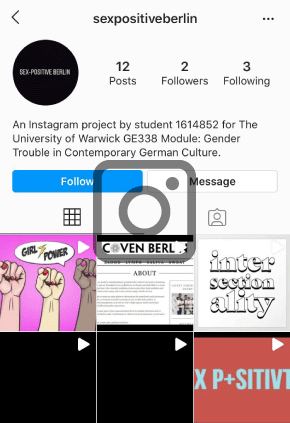 @sexpositiveberlinInstagram Project By: Nicole Wilson Department: School of Modern Languages and Culture |
|
The multimedia project presented three main challenges. The first was sourcing examples and generating technical how-to guides for a range of basic software that students might choose to use. Secondly, some students were anxious about the technical expectations. I assured them that even a technically “simple” audio recording could still score highly if the content is first-class; however, it should also be clear to the examiner that students have considered the limitations and affordances of the chosen medium and adapted their presentation accordingly. Finally, students had a lot of exciting ideas so part of the challenge was reigning them in and discouraging them from doing too much research given the weighting of the project. |
Want to see more of this?Take a look at the other modules with digital assessment and the amazing work created by their students. |



